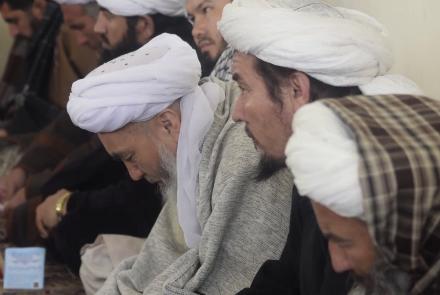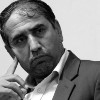As peace efforts get momentum at national and international levels, a number of religious scholars had a detailed discussion on the ongoing peace talks at a gathering in Balkh province on Thursday where they said they are in favor of any option which is used for achieving peace in the country, “even if it is establishment of an interim government”.
The clerics called on the Taliban to lay down their arms and enter face-to-face talks with the Afghan government so that they can share their demands directly with Afghan officials.
The group last week agreed in principal on a draft framework for peace after six-day talks with US officials in Qatar.
US Special Envoy Zalmay Khalilzad on Saturday said the key for peace is at the hand of Afghans as he acknowledged that progresses have been made in the peace process.
Balkh clerics said showing willingness for peace is a sign of “surrender” to the will of the Almighty Allah; therefore, the religious scholars said, the Taliban should not have any fear from joining peace.
They called on the Afghan government to make public “details of peace talks” with the people.
“The religious scholars here at this gathering and religious scholars in general are in favor of any option which is used for achieving peace whether it is an interim government or a transitional government. We accept all of them. We hope that government and Taliban accept this option for the sake of peace,” said Sayed Abdul Wakil Akhundzada, a religious scholar in Balkh.
The clerics called on government to protect people’s rights in the peace talks.
“There are ‘complicated’ ambiguities about peace because Afghanistan is a common land for everyone and all the people have the right to know about this process. A real peace is when justice is served, when everyone get their rights and when values are not violated,” said Mohammad Haidar Fayaz, member of Balkh Provincial Council.
According to the religious scholars, peace cannot be achieved by “begging” and that government should enter the talks from a strong position.
“Islam says peace should be with dignity and mutual respect should be ensured. There is Afghan government at one side with some demands and there is Taliban on the other side with some demands. The two sides should hold face-to-face talks on the table of negotiations so that their demands are shared with each other,” said Shujauddin, a religious scholar.
The remarks come a day after President Ashraf Ghani said that the key to peace is in Afghanistan because the Afghan government has a roadmap and a plan for peace.
He made the remarks at a gathering of at least 2,500 youths, from 300 districts, where they discussed peace and the role of youths in this process.
“The key to peace is in Afghanistan because we have the scheme, plan and roadmap for peace, but the key for war is in Islamabad, Quetta and Rawalpindi,” Ghani said.


